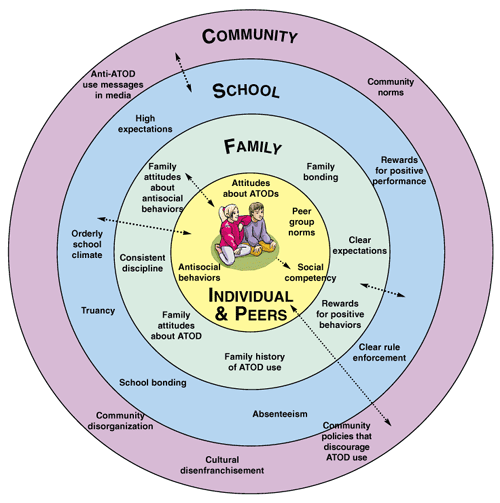

Taylor C., 1994, Multiculturalism, Princeton, Princeton University Press. Études sur les formes de la socialisation, Paris, PUF. Schwalbe M., Godwin S., Holden D., Schrock D., Thompson S., Wolkomir M., 2000, « Generic Processes in the Reproduction of Inequality: An Interactionist Analysis », Social Forces, n° 79, pp. Rawls J., 1987, Théorie de la justice, Paris, Seuil. ONU, 2006, The Role of the United Nations, New York, UN. Milanovic B., 2016, Global Inequality: A New Approach for the Age of Globalization, Cambridge, Massachusetts, Harvard University Press. Mailleux S., 2013, « La survie au quotidien: résistance ou mobilisation », Encyclo, Revue des doctorants de l’Ecole Doctorale EESC, Paris Diderot, pp. Liebig S., 2001, « Lessons From Philosophy? Interdisciplinary Justice Research and Two Classes of Justice Judgements », Social Justice Research, vol. Kellerhals J., Languin, N., 2008, Juste? Injuste? Sentiments et critères de justice dans la vie quotidienne, Paris, Payot. Kant, Emmanuel, La critique de la raison pratique, Paris, Flammarion, 2003. Kant, Emmanuel, Fondements de la métaphysique des mœurs, Le Livre de Poche, Paris, 1992. Kant, Emmanuel, La critique de la raison pure, Paris, Gallimard, 1990. Jasso G., 2006, « Factorial Survey Methods for Studying Beliefs and Judgments », Sociological Methods Research, vol. Honneth A., 1992, « Integrity and disrespect: principles of a conception of morality based on the theory of recognition », Political Theory, n° 20, pp. Les sentiments d’injustice contemporains et leurs raisons, Paris, Presses Universitaires de Paris-Sorbonne. Guibet-Lafaye C., 2012, Le juste et l’inacceptable. Grossetti M., 2011, « L’espace à trois dimensions des phénomènes sociaux », SociologieS en ligne, sans numéros de page. Goffman E., 1959, Presentation of Self in Everyday Life, Doubleday Anchor Books. Garfinkel H., 1967, Studies in Ethnomethodology, Prentice-Hall, Englewood Cliffs (NJ). The American Political Science Review, 84, pp. 68–93.įrohlich N., Oppenheimer J., 1990, Choosing justice in experimental democracies with production. 223–247.įorse M., Parodi A., 2010, Une théorie empirique de la justice sociale, Paris, Hermann.įraser N., 1995, “From Redistribution to Recognition? Dilemas of Justice in a “Postsocialist Age”, New Left Review n° 212, pp. 1–72.ĭuru-Bellat M., 2014, Pour une planète équitable, Paris, Seuil.ĭuru-Bellat M., Tenret E., 2012, « Who’s for Meritocracy? Individual and Contextual Variations in the Faith », Comparative Education Review, vol. 14–21.ĭubet F., 2010, Les places et les chances: repenser la justice sociale, Paris, Seuil.ĭurkheim É., Mauss M., 1903, « De quelques formes de classification – Contribution à l’étude des représentations collectives », Année sociologique, 6, pp. 119–146.ĭesjeux, D., 2006, « La question des échelles d’observation en sciences humaines appliquées au domaine de la santé », Recherche en Soins Infirmiers, n° 85, pp. P., 1972, “Structural Aspects of Distributive Justice, A Status Value Formulation”, in Joseph Berger, Zelditch Morris Jr, Anderson Bo (eds.), Sociological Theories in Practice, Boston, Houghton Mifflin, pp. 3 (1978): 541–64.īentham, Jeremy, An Introduction to the principles of morals and Legislation, Prometheus Books, Amherst, 1988.īerger J., Morris Z. “Who Should Get What? Fairness Judgments of the Distribution of Earnings.” American Journal of Sociology 84, no. S., 1965, “Inequity in social exchange”, in Berkowitz, Leonard (ed.), Advances in Experimental Social Psychology, Vol.

S., 1963, « Towards An Understanding of Inequality », Journal of Abnormal and Normal Social Psychology, 67, pp. This distance between the moral norm that is thought to float outside the social world and the numerous more or less developed and more or less contradictory concrete judgements we express every day and that frame our actions in a more or less reflective way raises the question of the levels or degrees of understanding of social justice, if only as a way of appreciating the diversity and complexity that have developed within this field of research in recent decades.Īdams J.

One of the main difficulties the empirical social sciences need to overcome is how they observe or even measure how the moral principles and prevailing ideals arising from moral and political philosophy are concretely embodied in levels and areas where they interact and are disputed within particular groups and in the daily lives of individuals. More specifically, we analyse the ways social justice is applied at each of the (micro, mezzo and macro) social levels. This chapter aims to give an account of social science’s various contributions to the issue of the different levels of social justice.


 0 kommentar(er)
0 kommentar(er)
